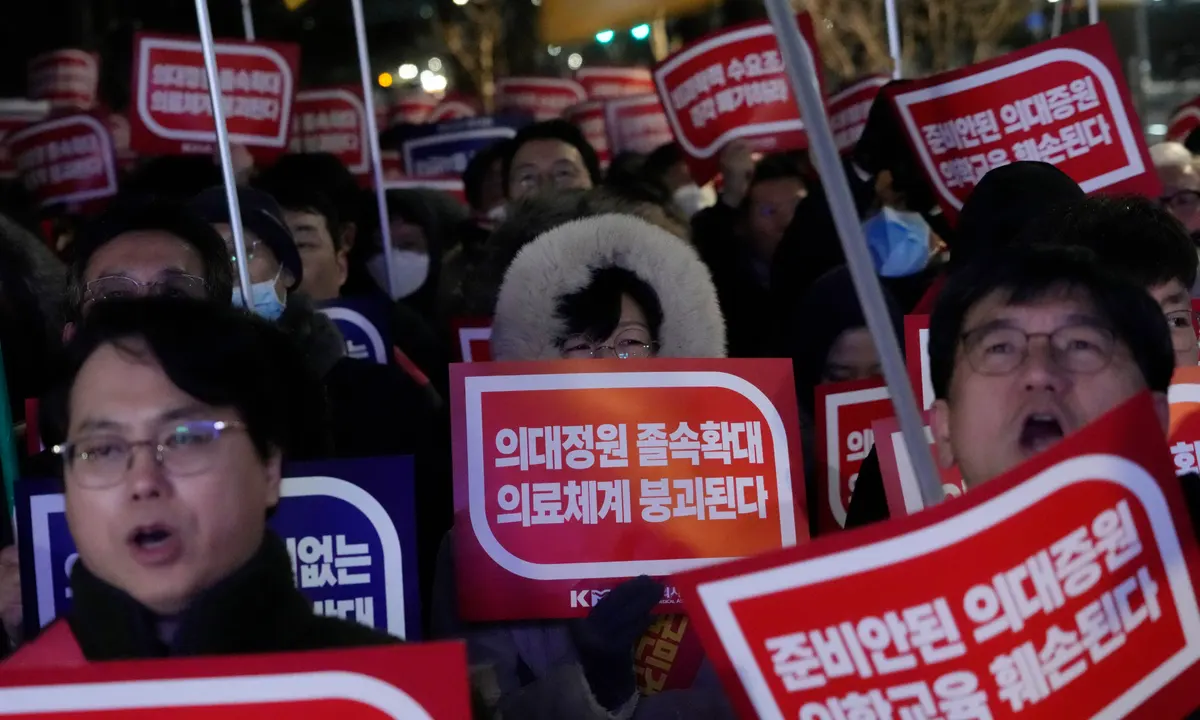Following the government’s announcement on increasing medical school admissions from 3,058 to 5,058 starting in 2025, over 9,000 doctors walked out to hold a mass anti-government rally. As a result, surgeries and other medical treatments have declined by about 50% across 15 medical centers, creating a national crisis.
“I do understand why they are rallying for these causes,” Olivia Park (11), avid news watcher, said. “It is true that junior doctors in Korea are often subject to mistreatment and injustice. But at the same time, I think that there are better ways to go against the government than to put the lives of innocent people at risk. After all, what fault do the unattended patients have?”
Although doctors do acknowledge that more doctors may be needed, they argue that the government’s quota increase of 2,000 is far too high, especially due to its potential repercussions. Residents and interns have raised concerns about increased competition, medical malpractice lawsuits, and insufficient pay for long hours.
They predict that the additionally recruited medical students will try to work in high-paying, popular professions like plastic surgery and dermatology. This means the country’s long-running shortage of physicians and emergency departments like pediatric care would remain unchanged.
Although hospitals have not accepted them, approximately 80% of residential doctors have submitted a letter of resignation as of today. Consequently, the government raised the cap on working hours for public medical institutions, made emergency rooms at military hospitals available to the public, and gave nurses and junior doctors legal protection to conduct medical procedures typically carried out by senior doctors.
“This is really bad,” Minseo Kim (11), political observer, said. “Patients should not have to go to military hospitals for urgent surgeries. Doctors and nurses should not be able to carry out practices that they were originally unqualified to do. These things are very dangerous, but this rally makes it inevitable for them to happen.”
Vice Health Minister Park Min-soo recently voiced that the country’s handling of critical and emergency patients remains largely stable. However, observers say that the country’s overall medical service sector will suffer a major blow if the walkouts are prolonged, or if more senior doctors continue to join the strike.
Doctors were warned to return to work by Feb. 29, threatened with the possibility of three years in prison or a 30 million-won fine, as well as up to one year’s suspension of their medical licenses. Regardless, over 7,000 strikers have been formally confirmed absent. The government sent notices to these strikers about license suspension proceedings and gave them the opportunity to respond before suspensions take effect.
Many believe that the government will likely end up punishing only strike leaders, instead of all of the thousands of striking doctors as it would take extensive efforts over long periods to complete license suspension for all the 9,000 striking doctors.
“The steps that have to be taken in order to suspend one’s license is very strenuous, and it also takes lots of time,” Alex Lee (11), political science student, said. “I cannot see how it would be realistically possible for the government to complete all of these suspensions in an efficient manner. They probably will not be doing it.”


